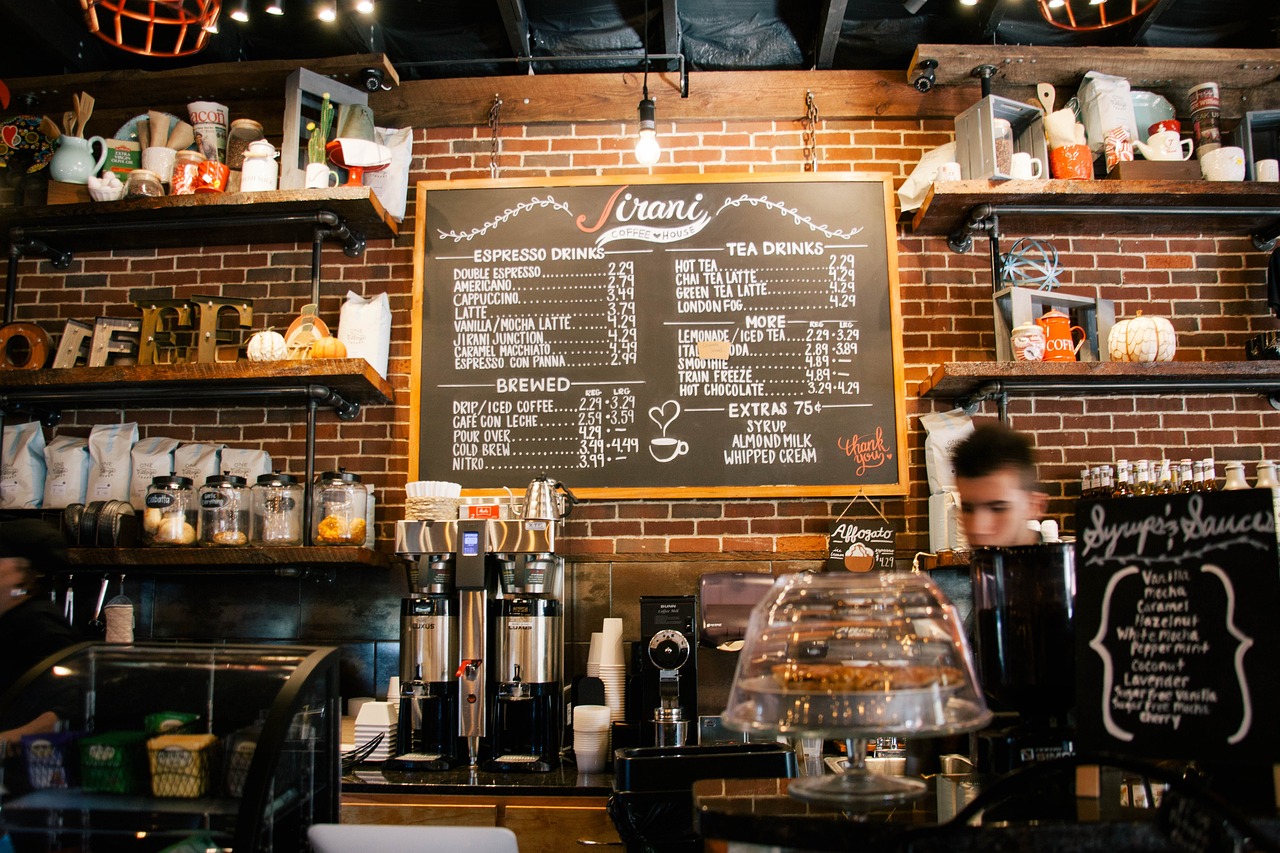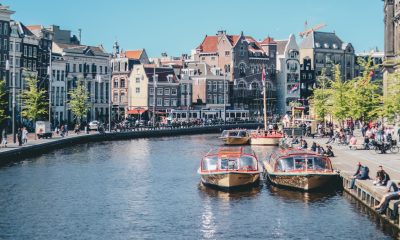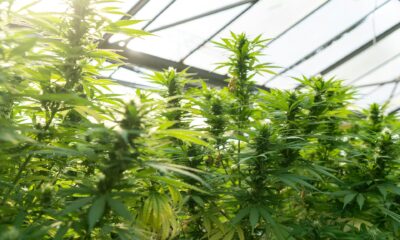Cannabis
Dutch Cannabis Legalization Pilot project to Start this Week
For decades, “coffee shops” in the Netherlands have operated under a system in which the sale of cannabis was legally tolerated, but its cultivation was prohibited. In practice, this meant that consumers had no way of knowing where, by whom, when and under what conditions the cannabis they bought from the coffee shop was grown. Legally produced cannabis will come in a package with a QR code

A cannabis legalization pilot project is about to start in the Netherlands. The Dutch government has decided that the preparatory phase of a closed-chain experiment in supplying cannabis from legal cultivation to coffee shops will begin on December 15th, 2023.
The latest schedule shows that two legal producers will be ready to supply coffee shops in the fourth quarter of 2023. This will be enough to be able to start the preparatory phase of the pilot program in Breda and Tilburg.
Read more about the cannabis legalization pilot project in the Netherlands and find the most important cannabis news from around the world with the Hemp.im mobile app, available for free for both Android and iOS devices.
Cannabis legalization pilot project to start in Breda and Tilburg
During this phase, coffee shops in Breda and Tilburg participating in the pilot program will be able to offer both legally produced and tolerated products, i.e. droughts from the black market. Two more producers are expected to begin supplying coffee shops in Breda and Tilburg in February 2024.
The preparatory phase initiative was introduced by the mayors of Breda and Tilburg, and was approved by Health, Welfare and Sports Minister Ernst Kuipers and Justice and Security Minister Yeşilgöz-Zegerius to begin a small-scale “experiment with legalized production and sales chain.”
This will allow gaining experience with a closed supply chain and all the processes involved. Progress in the preparatory phase will be monitored.
If public order or security is seriously threatened, the preparatory phase will be terminated prematurely. Lessons learned will be presented to all participating cities and used to improve processes and systems for a smooth transition to the next phase, reports rijksoverheid.nl.
The preparatory phase is expected to last a maximum of six months. The transition phase will then begin. It is expected that all participating cities will be able to start the transition phase at the end of the first quarter of 2024 at the earliest. During this phase, coffee shops in participating cities will be able to offer legally grown and black market products.
Six weeks after the start of the transition phase, the actual experimental phase will begin
Participating coffee shop owners will from then on be able to sell only cannabis from regulated crops.
For decades, “coffee shops” in the Netherlands have operated under a system in which the sale of cannabis was legally tolerated, but its cultivation was prohibited. In practice, this meant that consumers had no way of knowing where, by whom, when and under what conditions the cannabis they bought from the coffee shop was grown.
Legally produced cannabis will come in a package with a QR code, which will allow consumers to access information about, among other things, where and when the product was grown and by which company. The experiment will last four years, at which time a decision will be made on whether it will be extended.
__
(Featured image by Pexels via Pixabay)
DISCLAIMER: This article was written by a third party contributor and does not reflect the opinion of Born2Invest, its management, staff or its associates. Please review our disclaimer for more information.
This article may include forward-looking statements. These forward-looking statements generally are identified by the words “believe,” “project,” “estimate,” “become,” “plan,” “will,” and similar expressions. These forward-looking statements involve known and unknown risks as well as uncertainties, including those discussed in the following cautionary statements and elsewhere in this article and on this site. Although the Company may believe that its expectations are based on reasonable assumptions, the actual results that the Company may achieve may differ materially from any forward-looking statements, which reflect the opinions of the management of the Company only as of the date hereof. Additionally, please make sure to read these important disclosures.
First published in Fakty Konopne. A third-party contributor translated and adapted the article from the original. In case of discrepancy, the original will prevail.
Although we made reasonable efforts to provide accurate translations, some parts may be incorrect. Born2Invest assumes no responsibility for errors, omissions or ambiguities in the translations provided on this website. Any person or entity relying on translated content does so at their own risk. Born2Invest is not responsible for losses caused by such reliance on the accuracy or reliability of translated information. If you wish to report an error or inaccuracy in the translation, we encourage you to contact us

-

 Fintech2 weeks ago
Fintech2 weeks agoFintower Secures €1.5M Seed Funding to Transform Financial Planning
-

 Impact Investing1 day ago
Impact Investing1 day agoItaly’s Listed Companies Reach Strong ESG Compliance, Led by Banks and Utilities
-

 Impact Investing1 week ago
Impact Investing1 week agoBNP Paribas Delivers Record 2025 Results and Surpasses Sustainable Finance Targets
-

 Crypto5 days ago
Crypto5 days agoUniswap and BlackRock Partner to Launch BUIDL in DeFi























